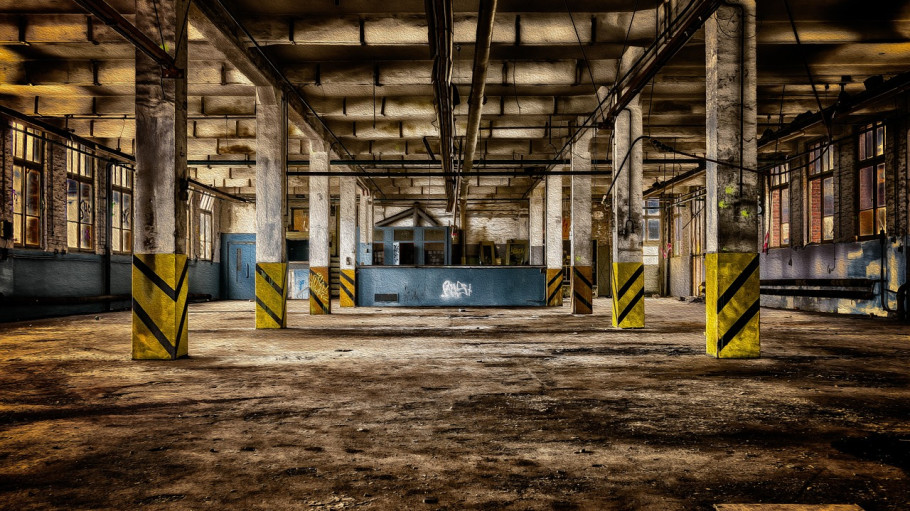
Press releases » European steel industry and manufacturing at existential risk: radical Clean Industrial Deal last train for stronger and greener EU, warns EUROFER
European steel industry and manufacturing at existential risk: radical Clean Industrial Deal last train for stronger and greener EU, warns EUROFER
Recent updates

Brussels, 05 September 2024 – The latest developments in the steel sector and across critical value chains are worrying signs of a steady deterioration, endangering the survival and the transition of steelmakers and their key manufacturing customers in Europe, such as automotive. A Clean Industrial Deal including swift and radical measures in EU industrial, energy and trade policies, is the last chance to ensure Europe’s prosperity and shield European industry from cheap imports driven by third countries’ unfair trade practices, overcapacity and lower climate ambition, urges the European Steel Association.
“The risk of de-industrialisation in Europe has never been more evident than today. The latest news coming from Germany and Eastern and Central Europe are only the tip of the iceberg we have been warning about since a decade, and which is now impacting not only steel but also key value chains such as automotive and wind. The situation is explosive; both industry and decarbonisation are at risk”, said Axel Eggert, Director General of the European Steel Association (EUROFER). “Either we get a robust Clean Industrial Deal, or Europe will inevitably become an industrial museum powered by Chinese and American clean technologies”, he warned, adding that: “The key requirements for the EU steel industry to remain in Europe are, firstly, immediate and comprehensive trade action stopping unfair trade practices and global overcapacity being offloaded onto, and destroying, the EU steel market. Secondly, a waterproof Carbon Border Adjustment Mechanism (CBAM) that will not allow steel imports from countries that circumvent climate protection by exporting to the EU from a few ‘clean’ installations and selling their dirty steel in their domestic and non-EU markets. Furthermore, we need affordable clean energy and lead markets for EU-made green products to support the transition”.
The situation of the European steel industry, which has a foundational role in most critical value chains such as wind and solar, automotive, construction, household appliances, defence, machinery and technical equipment, has never been so dire:
“The European steel sector is a litmus test for the entire EU industry’s health. We rang the alarm bell several years ago. Now the symptoms of deindustrialisation have spread to the value chain. We need, as Mario Draghi said, radical change in EU policies to reboot our competitiveness. This is the last train for Europe’s decarbonisation and prosperity”, concluded Mr. Eggert.
*Data on job losses updated including the correct time range and excluding the UK in the whole statistical series.
Contact
Lucia Sali, Spokesperson and Head of Communications, +32 2 738 79 35, (l.sali@eurofer.eu)
About the European Steel Association (EUROFER)
EUROFER AISBL is located in Brussels and was founded in 1976. It represents the entirety of steel production in the European Union. EUROFER members are steel companies and national steel federations throughout the EU. The major steel companies and national steel federation of Turkey, Ukraine and the United Kingdom are associate members.
The European Steel Association is recorded in the EU transparency register: 93038071152-83.
About the European steel industry
The European steel industry is a world leader in innovation and environmental sustainability. It has a turnover of around €191 billion and directly employs around 303,000 highly-skilled people, producing on average 140 million tonnes of steel per year. More than 500 steel production sites across 22 EU Member States provide direct and indirect employment to millions more European citizens. Closely integrated with Europe’s manufacturing and construction industries, steel is the backbone for development, growth and employment in Europe.
Steel is the most versatile industrial material in the world. The thousands of different grades and types of steel developed by the industry make the modern world possible. Steel is 100% recyclable and therefore is a fundamental part of the circular economy. As a basic engineering material, steel is also an essential factor in the development and deployment of innovative, CO2-mitigating technologies, improving resource efficiency and fostering sustainable development in Europe.
Strasbourg, 17 December 2025 – The European Commission’s latest proposals on the Carbon Border Adjustment Mechanism (CBAM), unveiled today, correctly identify several loopholes that risk undermining its effectiveness, notably regarding EU exports, downstream sectors and circumvention practices. However, despite these laudable efforts, the measures put forward fail to deliver a comprehensive and durable response to carbon and jobs leakage, warns the European Steel Association (EUROFER).
A milestone occasion to quickly and effectively restore affordable electricity, to relaunch the
decarbonization and strengthen the international competitiveness of the European steel
industry.
Brussels, 02 December 2025 – Unchanged negative conditions – U.S. tariffs and trade disruptions, economic and geopolitical tensions, protracted weak demand and still high energy prices – continue to weigh on the European steel market. EUROFER’s latest Economic and Steel Market Outlook confirms for 2025 another recession in both apparent steel consumption (-0.2%, unchanged) and steel-using sectors (-0.5%, revised from -0.7%). A potential recovery is expected only in 2026 for the Steel Weighted Industrial Production index (SWIP) (+1.8%, stable) and for apparent steel consumption (+3%, slightly revised from +3.1%) – although consumption volumes would still remain well below pre-pandemic levels. Steel imports retained historically high shares (27%), while exports plummeted (-9%) in the first eight months of 2025.